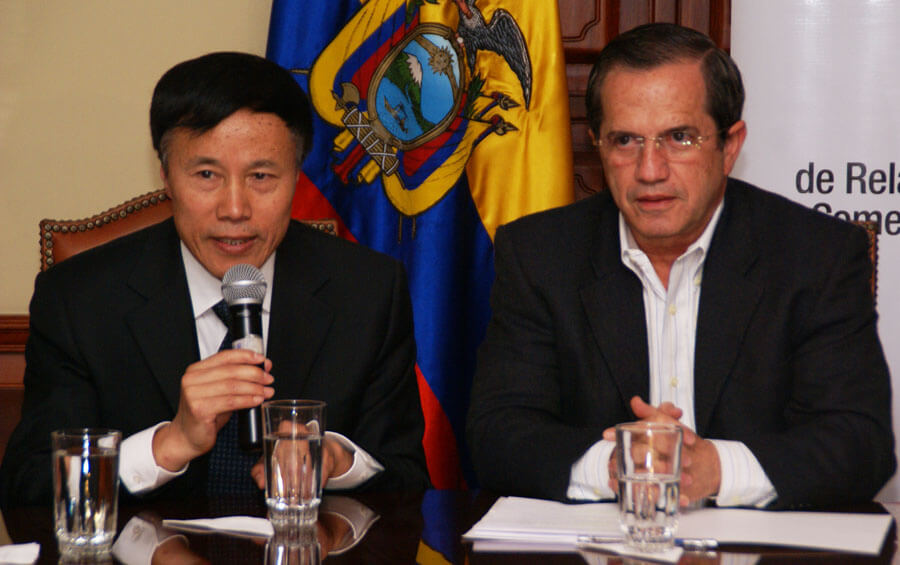China fails to cooperate in corruption investigation into its former ambassador to Ecuador
Photo: Former Chinese Ambassador Cai Runguo with then Foreign Minister Eduardo Patiño. Image from 2010. Credit: Flickr.
The lack of cooperation from the former Chinese ambassador to Ecuador, Cai Runguo, and his government in investigations related to the construction of the Coca Codo Sinclair hydroelectric plant has come to light in a recent update from Ecuador’s judicial authorities. This project has become entangled in a complex web of corruption that is still being unraveled by Ecuadorian authorities.
Cai Runguo, who served both as the Chinese ambassador to Ecuador and as an executive of Sinohydro Corporation, responsible for the construction of the controversial Coca Codo Sinclair hydroelectric plant in the Ecuadorian province of Napo has avoided requests for collaboration. The Chinese Embassy in Quito has remained silent on the matter. This case is significant due to Runguo’s close ties with former presidents Rafael Correa and Lenín Moreno, as well as his pivotal role in the development of the hydroelectric project in question.
The construction of the Coca Codo Sinclair hydroelectric plant has been mired in controversy since its inception, with allegations of corruption involving both government and business figures. Runguo, a prominent figure in both scenarios, faces accusations in two separate criminal cases related to alleged bribes and kickbacks surrounding the project.
Despite persistent requests for collaboration from Ecuadorian judicial authorities, China has ignored ten requests for legal assistance, raising questions about transparency and accountability in international relations. Runguo has virtually disappeared from the national scene since 2016, seeking refuge in China, which has not responded to any requests for legal cooperation in investigating him.
This affair also raises concerns about the complexity of dealing with high-profile figures who have played key roles in both diplomatic and business spheres incross-national corruption cases.
Eduardo Gamarra, an expert in politics and international relations, points out that this behavior exemplifies what he calls “geostrategic corruption,” a Chinese strategy aimed at securing contracts in strategic areas of Latin America. The case of Cai Runguo underscores the fusion of Chinese state and business interests, challenging traditional boundaries between diplomacy and business.
Amidst this intricate legal web, China’s lack of collaboration raises questions about international cooperation in corruption investigations and emphasizes the need to address these challenges on a global scale.

